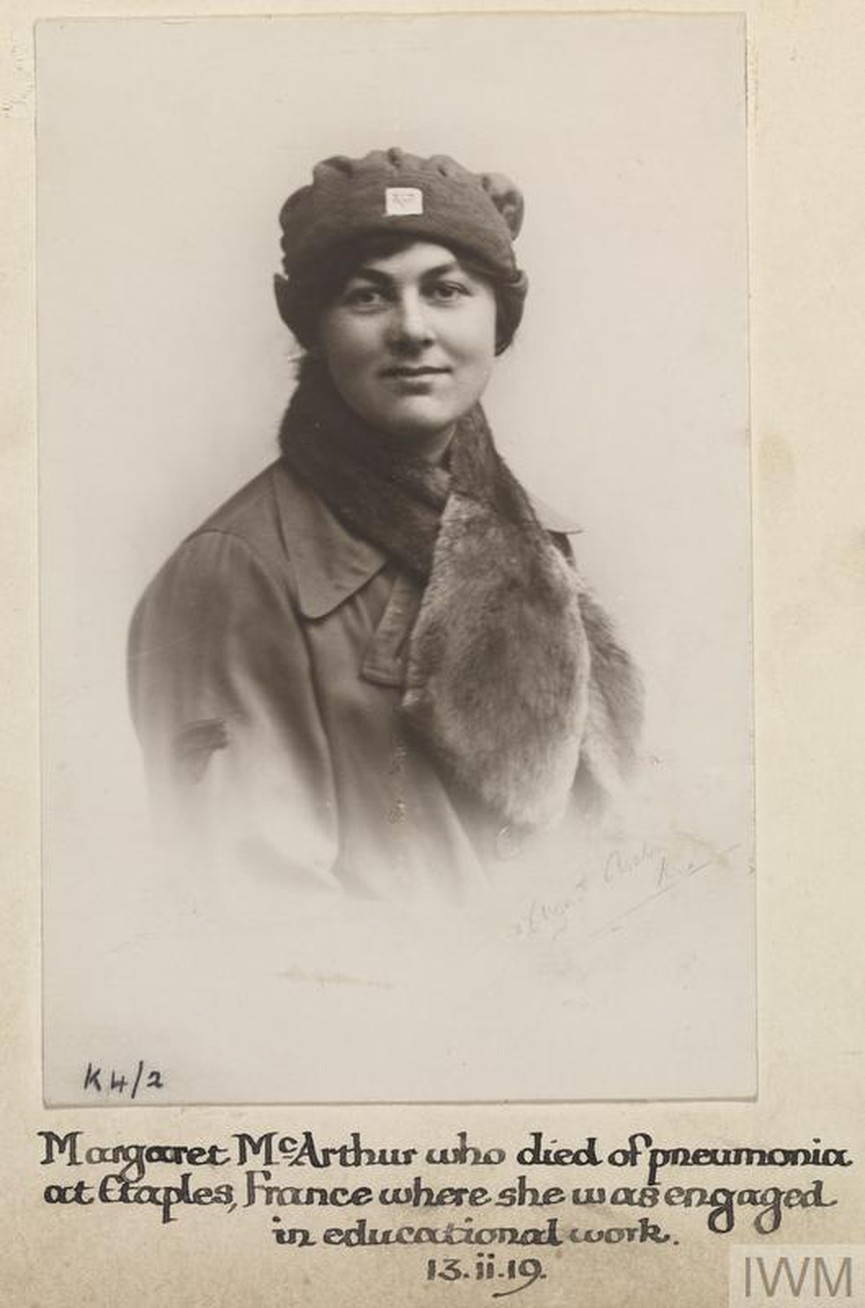
Marguerite was born on the 25th March 1892 in Kensington London. From an early age she had a love of books. She attended Norland Place School in Notting Hill. It was soon apparent that she was academically gifted. She also excelled at sport, especially Hockey. During the war years she became Honorary Secretary of the Norland School Old Girls Association. Marguerite left school in 1908 and went on to higher education attaining First Class honours at the Cambridge Higher Local with a distinction in history. In 1910 she went to Dresden in Germany to study culminating in First Class Honours again with a distinction in spoken German. She was also fluent in French.
In January 1911 went to Canada in what was a combines holiday/studying venture. October of that year would see her entering Clough Hall Newham College Cambridge to study further in the German language, again attaining First Class honours.
At the outbreak of war Marguerite was employed by the Young Men’s Christian Society (YMCA). The Society had been established in London in 1844 as a prayer and bible study group. At the outbreak of war it turned their attention to providing support for servicemen. In November 1914, working with the BEF, it established centres in France. By 1918 there were over 300 centres. Marguerite would find herself working in the War Office Translation Bureau because of her language skills. From March 1918 Marguerite was part of the Army Education Service of the YMCA at Etaples on the northern coast of France. It was there in early 1919 she contracted pneumonia and died on the 13th February just 26 years old. She is buried in Etalpes Military Cemetery.
Explore more memories from the ribbon
-
Herbert Mills
Submitted by John H Mills – who wanted to tell the story of his grandfather. Herbert Mills was born on 16th May 1879 in Huddersfield, Yorkshire, four months before his parents were married. Shortly after the marriage his mother and father separated his father got into trouble with the Law, abandoned them and departed for America. Herbert and his mother went to live with her parents. In 1891 he was still living with his grandparents and in 1911, age 31, he was living with his Aunt (his mother’s sister). He married in 1913 and had a son in 1914. His son went on to join the RASC in 1939. Herbert, age 35, volunteered in Lord Kitchener’s “Volunteer Army”. He had been married less than two years and had a one year old son. He was a Power Loom Weaver in a woollen mill. He enlisted in Huddersfield on 4th June 1915. His Attestation puts him in the Royal Army Medical Corps as a Mental Assistant and posted to RAMC 92nd Field Ambulance Unit, Crookham, Aldershot. He was posted to the, 15th Northumberland Fusiliers in August 1915. From August to September 1915 he was stationed at Hamersley, Physical Training Base Aldershot, and from September 1915 to March 1916 at Rugeley Camp, Cannock Chase. Rugeley Camp was a training camp which replicated the trenches in France and was used for training soldiers prior to embarking to the Front Line. He was promoted Corporal in November 1915. In March 1916 he was posted…
-
Batchie Griffiths
Elizabeth Jane Griffiths known as Batchie Born in Llandingat, Carmarthenshire, in 1899. Batchie was enrolled with the Red Cross at the age of 18 and served as a VAD for just over a year. She was stationed at Catterick Military Hospital as a clerk. After her time at Catterick Camp, she returned to North Wales and married Emlyn James. Just before Christmas 1946, the British authorities relaxed the rules on contacts between British people and German prisoners of war. Emlyn and Batchie James were among the many British families who invited German prisoners to their home on Christmas day. From then on they invited two German prisoners from the camp at Castle Martin to their home in Pembroke every fortnight. Each time a prisoner was moved to a different camp, another would take his place, and so over time they got to know many Germans. Batchie and Emlyn received a letter from the Secretary of State for War refusing permission for two German prisoners of war, Helmut Grothe and Joachim Becker, to visit before returning to Germany. These two prisoners had been among those whom Emlyn and Batchie James had invited to their home in Pembroke. This information provided by Alathea Anderssohn (granddaughter of Batchie Griffiths) has been drawn from the Imperial War Museum’s ‘Lives of the First World War’ archive.
-
Robert William Watson
Submitted by Jon Bemrose. Robert William Watson was the Fourth son of Alfred and Annie Watson, of 15, Ashville St., Bridlington. Before the outbreak of hostilities he was a fireman of the North Eastern Railway at Bridlington. 241608 Private Robert Watson served in the 5th Battalion Yorkshire Regiment and died on 28th October 1917 aged 21. His name is inscribed on the Tyne Cot Memorial in Belgium and on the cenotaph in Bridlington.
